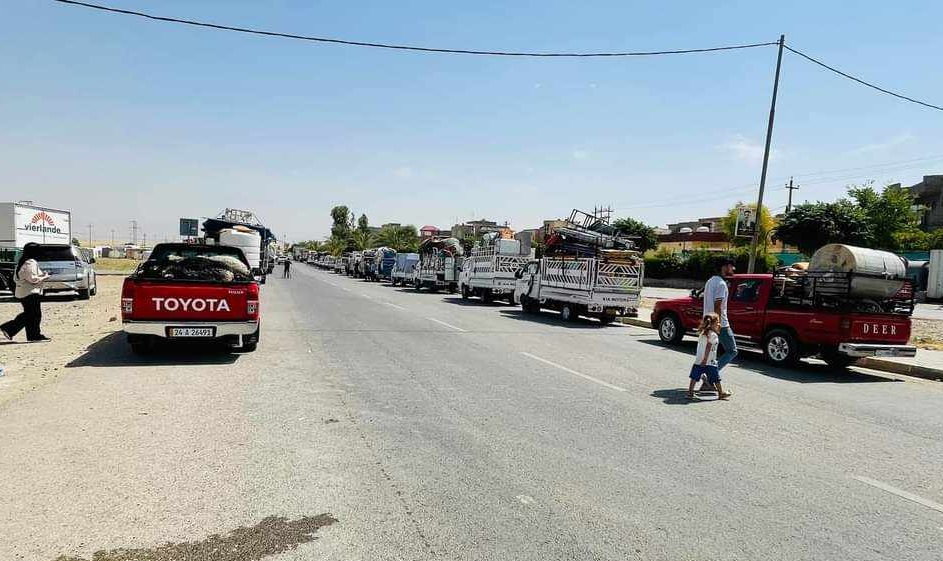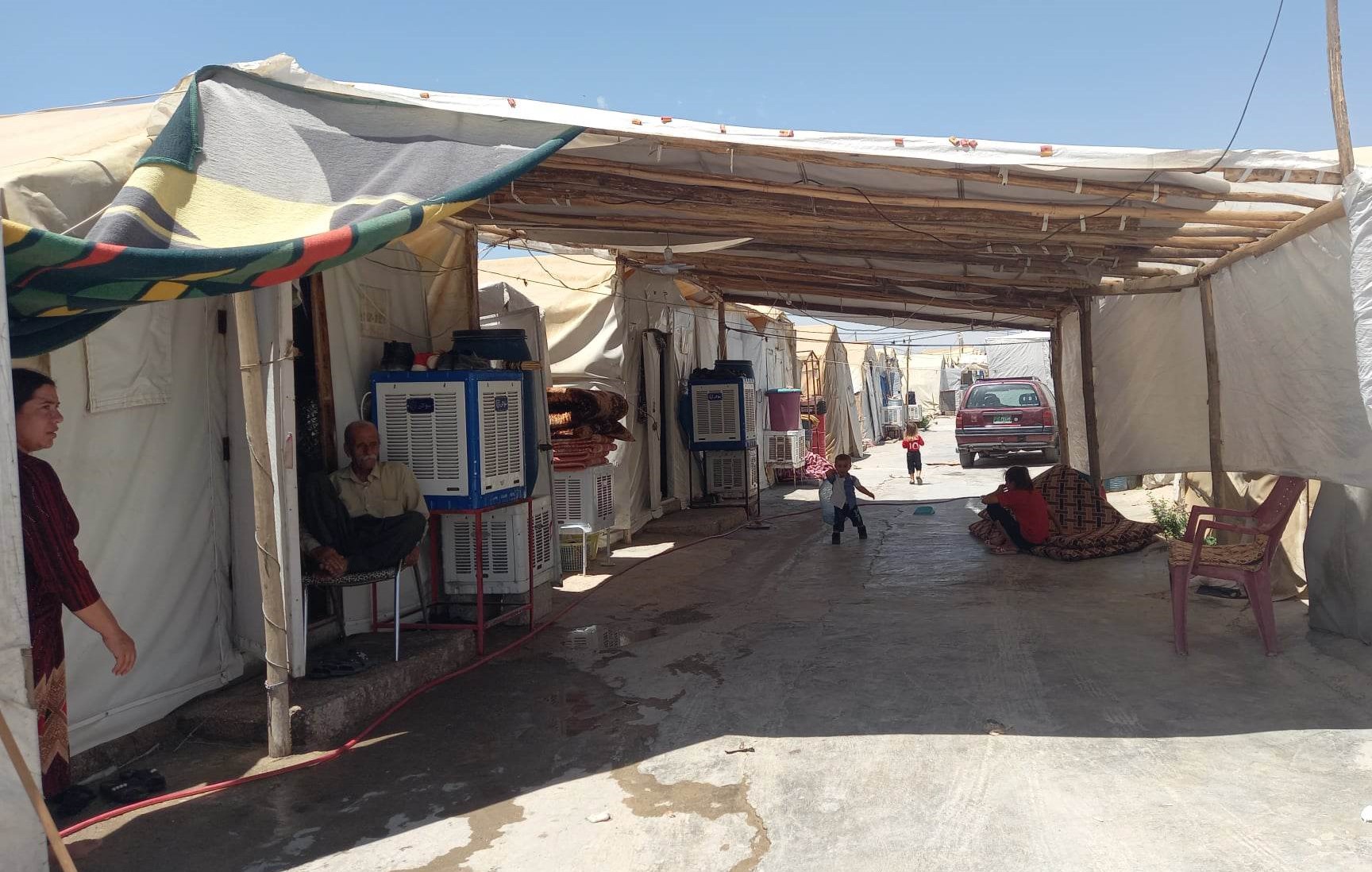Despite the Iraqi government's insistence on resolving the displaced issue, 800 Ezidi (Yazidi) families have returned to the camps for the Internally Displaced Persons IDPs of the Kurdistan Region of Iraq (KRI) from Shingal (Sinjar) District, home for the Ezidi community, many of them returned since early 2024.
The wave of reverse migration is mainly due to the unstable security situation, lack of services, and job opportunities, along with unresolved administrative problems, according to the IDPs who have returned to the camp.
Khairi Khudeda Khalaf, an Ezidi citizen, left Mam Rashan camp in Duhok Northern Province in late November 2024 after ten years of displacement and returned to his village of Khanasur, hoping to start a new life, but returned to the same camp again last April.
"There were no job opportunities, electricity, health services, and we preferred to return to the camp," Khalaf said.
In January 2024, the Iraqi Ministry of Migration and Displacement increased financial assistance to displaced families returning from IDP camps to their homes from 1.5 million Iraqi dinars IQD (USD1,000) to 4 million IQD, in addition to providing household items and other benefits such as employment and social welfare salaries.
The new initiative aimed to facilitate the return of IDPs and close the IDP camps of the KRI. According to the government's plan, all camps should have been closed by mid-2025.
"We completed all the transactions to return and receive the aid, but when we returned, we did not receive any aid," Khalaf added.
Khalaf, a father of four, worked as daily-paid construction laborer in Shingal.
"My job was very difficult. I loaded blocks for eight hours a day. The government had not provided services and prosperity to the area.”
According to the statistics of the Migration and IDPs Office of the Ministry of Interior of the Kurdistan Regional Government KRG, from January 2024 to last July, 800 families have left their hometowns in war-torn Shingal and returned to Duhok province.
"We have a special committee to welcome the families returning to the Kurdistan Region. The committee meets every Wednesday and processes the transactions of these families," Pir Dayan Jaafar, director of the office, told KirkukNow.

"Any family that returns to Shingal through the IOM program have no right to return to the camp again, but others who return to Shingal within the framework of the Iraqi Ministry of Migration have the right to live in the camp or outside," he added.
In total, about 1,000 families have returned to Shingal through the International Organization for Migration (IOM), the last phase of which was the return of 370 families last May.
Alongside the government, IOM is working on a package to assist IDPs in their return. The package includes material assistance (between $1,000 and $1,700), housing renovation, employment, and relocation, but varies according to family livelihoods.
The Iraqi government has decided to suspend the return of IDPs to their homes since July 2024, until reaching an agreement with the KRG on this issue.
"There is no deadline for receiving the displaced transactions, and we do not know when it will be opened," Jaafar said.
He mentioned that those who are displaced again have several reasons, including security instability, the presence of unrecognized forces in Sinjar, lack of services and job opportunities, and unresolved administrative problems, such as the absence of a mayor, forcing locals to return to Duhok province for any government transaction.
On Wednesday, August 13, some residents of Shingal filed a lawsuit against Abdulqadir Dakhil, the governor of Nineveh, because although the provincial council has elected a governor for Shingal, he is not ready to appoint him officially.
There are still 188,944 IDPs living in Duhok, of which 135,616 are in IDP camps and divided into 27,069 families.
Iskandar Mohammed Amin, director of the Iraqi Migration and IDPs Office in Duhok province, told KirkukNow that the ministry has suspended the receipt of IDPs, meaning that no IDPs can return.





